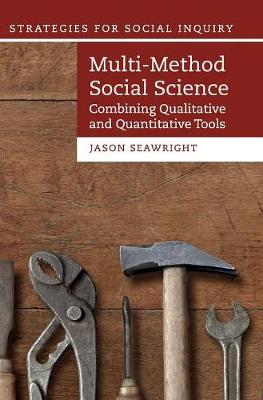Strategies for Social Inquiry
2 total works
Reflecting the rising popularity of research that combines qualitative and quantitative social science, Multi-Method Social Science provides the first systematic guide to designing multi-method research. It argues that methods can be productively combined using the framework of integrative multi-method research, with one method used to carry out a final causal inference, and methods from other traditions used to test the key assumptions involved in that causal inference. In making this argument, Jason Seawright considers a wide range of statistical tools including regression, matching, and natural experiments. The book also discusses qualitative tools including process tracing, the use of causal process observations, and comparative case study research. Along the way, the text develops over a dozen multi-method designs to test key assumptions about social science causation.
The most important step in social science research is the first step - finding a topic. Unfortunately, little guidance on this crucial and difficult challenge is available. Methodological studies and courses tend to focus on theory testing rather than theory generation. This book aims to redress that imbalance. The first part of the book offers an overview of the book's central concerns. How do social scientists arrive at ideas for their work? What are the different ways in which a study can contribute to knowledge in a field? The second part of the book offers suggestions about how to think creatively, including general strategies for finding a topic and heuristics for discovery. The third part of the book shows how data exploration may assist in generating theories and hypotheses. The fourth part of the book offers suggestions about how to fashion disparate ideas into a theory.

